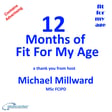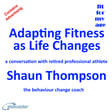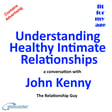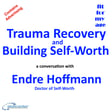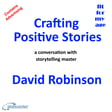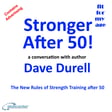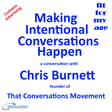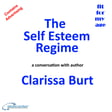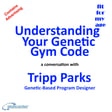
Making Adjustments - Learning how to Run Part 2 a conversatin with Trina Wilcox
Trina Wilcox was diagnosed with Juvenile Rheumatoid Arthritis (JRA) at the age of six. Some people would have believed that as a result running a marathon would be impossible, but with the help and support of family, friends and coaches Trina has run ten marathons (to date).
In this episode of Fit For My Age one of our Learning How to Run series Trina explains to Michael Millward some of the adjustments she made to be able to run marathons.
You will be surprised by Trina’s revelations!
Trina and Michael discuss the different ways in which they became runners. Trina also explains how she had dealt with the times that she has not been able to run because of illness or injury.
Fit For My Age is made on Zencastr.
Zencastr is the all-in-one podcasting platform, on which you can create your podcast in one place and then distribute it to the major platforms like Spotify, Apple, and Google. It really does make creating content so easy.
If you would like to try podcasting using Zencastr visit zencastr.com/pricing and use our offer code ABECEDER.
Find out more about both Michael Millward and Trina Wilcox at Abeceder.co.uk
Listen to Trina's internet radio station Run Radio
Visiting Missouri
Trina is based in Missouri USA. If you would like to visit Missouri the best place to make your travel arrangements is The Ultimate Travel Club, because that is where you can access trade prices for flights, hotels and holidays. Use my offer code ABEC79 to receive a discount on your membership fee.
Matchmaker.fm
Thank you to the team at Matchmaker.fm the introduction to Trina.
If you are a podcaster looking for interesting guests or if like Trina, you have something very interesting to say Matchmaker.fm is where matches of great hosts and great guests are made. Use our offer code MILW10 for a discount on membership.
Three the network
If you are listening to The Independent Minds on your smart phone, you may like to know that Three has the UK’s Fastest 5G Network with Unlimited Data, so listening on Three means you can wave goodbye to buffering.
Visit Three for information about business and personal telecom solutions from Three, and the special offers available when you quote my referral code WPFNUQHU.
Being a Guest
If you would like to be a guest on Fit For My Age, please contact using the link at Abeceder.co.uk.
We recommend that potential guests take one of the podcasting guest training programmes available from Work Place Learning Centre.
We appreciate every like, download, and subscriber.
Thank you for listening.
